www.ethnicDance.net
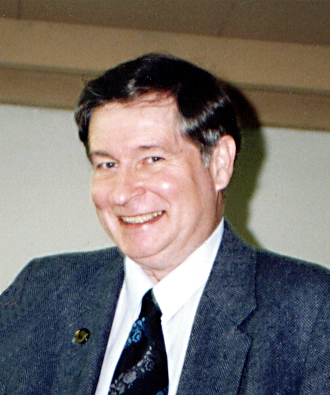 Dennis Boxell (Fair Oaks, CA)
Dennis Boxell (Fair Oaks, CA)
(916)-966-9012, dennisboxell@msn.com
Dennis Boxell is
originally from Minneapolis, Minnesota where, at the age of 15, in
1955, he first became acquainted with the music and dance of the South
Slavs. Under the
encouragement of Lillian Kurkowsky of the St. Paul International
Institute,
he learned the dances of the Croatian and Serbian immigrants
there.
Later, in 1961, he formed a performing group in South St. Paul with the
children
of these Slavic (mostly Serb) immigrants. It was during his years
in
Minneapolis that Dennis first met the brilliant folk dance researcher
and
then choreographer of the Duquesne University Tamburitzans, Dick
Crum.
Inspired by Mr. Crum, Dennis began to develop a professional and
enthusiastic
interest in Balkan Dance.
From 1958 to 1961, Dennis
served in the U.S. Army Security Agency. He was trained in the
Czech language at the Army Language School in Monterey, California
where he graduated first in his class with highest commendations.
From there he was sent to
West Germany to monitor and translate radio transmissions from
Czechoslovakia. While in Germany, in 1960, he took his annual
30-day leave and through a
stroke of luck and good timing, ended up traveling with the National
Folk
Ensemble of Yugoslavia, “Kolo iz Beograda”. The dancers of “Kolo”
accepted
Dennis as their young American friend and shared with him many of their
dances
as he traveled with them from town to town.
Dennis then traveled to
London, England to study with Phillip Thornton’s “Yugoslav Dance Club
and Danny Lumbley’s
“Bulgarian Dance Group”. There he learned the original five
dances
that were to launch him on his career. They were Bavno Oro, Ravno
Oro,
Tresenica, Sitno Zensko, and Belo Lence.
Returning from the Army,
Dennis traveled West to study at the University of California,
Berkeley, having finished his freshman year at the University of
Minnesota. En route to California, Dennis was “discovered” by
John Filcich in the small town of
Richland, Washington during their annual folk dance festival. Mr.
Filcich
was the creator of the San Francisco “Kolo Festival” (Kolo means
“dance”
in Serbo-Croatian) and owner of the largest Balkan record and music
shop
in the U.S. He brought Dennis to the Kolo Festival that fall, in
November
1962, where Dennis presented the “original five dances” with great
success
and acclaim.
Dennis’ career was now
launched in full swing. He was asked to teach at Stockton Folk
Dance Camp where he taught for five years in a row. He was the
first Balkan dance teacher to go on an extended national teaching tour,
visiting dozens of cities throughout the country, presenting his five
dances, including a new addition, “Šopsko Horo”. Of the original
“Five,” Bavno Oro is still a favorite everywhere. Ravno, Šopsko
and Tresenica are still danced here and there. Belo Len?e
has been “resurrected” as “Iz Banju Ide” and is becoming a favorite as
of
this writing (winter, 2001).
In the fall of 1963,
heeding the public’s clamor for more information about Balkan Dance,
Dennis packed his suitcases and headed for the Balkans. He did
not return until he
had: 1) Recorded over 150 dance tunes. 2) Visited and studied
with eminent folklorists such as Ivan lvan?an of Croatia, Milica
Illijin and
Dobrivoje Putnik of Serbia, Pece Atanasovski and Vasil Hadjimanov of
Macedonia,
Kiril Dženev and Raina Katsarova of Bulgaria and Nana Stefanaki of
Greece. 3) And had picked up a working knowledge of the
Serbo-Croatian and Bulgarian languages along the way. These
experts made it possible for Dennis
to travel to remote regions, collecting and recording the numerous
dances
he was later to introduce to the folkdance world.
Alix Cordray (Oslo,
Norway)
Alix Cordray is an
American who has lived in Norway for almost all of her adult life, and
teachs a selection of dances from Norway. Alix teaches and leads
several groups in the Oslo area. She has brought a number of
groups to the USA to teach
and tour. A few names of Alix's dances that folk dancers in the
United
States will recognize are Dobbel Reinlender, Krossadans med Seks,
Oppdalsril,
Over the Border Schottis, Sandsvaerril, and Wienerkryss frå
Hardanger.
Ivan Dimitrov
(Bethesda, MD)
(301)-404-4826, ivandance@hotmail.com
http://www.ivandance.com
Ivan Dimitrov is a
fun dynamic teacher for recreational dancing for beginners and advanced
dancers alike. Ivan has lived in the U.S. since 1996, including 18
months in Chicago. He leads a performing group in the D.C.
area. That has danced at the Kennedy Center Millenium stage, the
World Bank, the Cherry Blossom festival, DC area folk dance festivals,
at the tri-state parks and at the annual Heritage Festival in
Philadelphia. In Bulgaria, he
was a dancer with the
Bulgarian National Folk Ensemble "Trakia" of Plovdiv.
Todor and Irina
Gotchev (Des
Plaines, Illinois)
(847)-297-9129, kapkag@yahoo.com
Todor and Irina Gotchev
have lived in the Chicago area since moving to the U.S. in 1996.
Todor Gotchev specializes in the of the village of Kermen in eastern
Thrace. For many years he was a dancer, choreographer, and
director with the Bulgarian National Folk Ensemble "Sliven". Irina
Gotcheva was soloist with the Bulgarian National Folk Ensemble
"Sliven". She is a graduate of the national choreographic school
in Sofia as well as the Academy for Music
and Dance Arts, Plovdiv and has done research on village dance in
eastern Thrace. Todor and Irina recently did a great job of
teaching at the Balkanske Igre Spring Festival Weekend at International
House in Chicago
this March. At the Spring Fling Workshops, Irina will be
reviewing several of the dances sha and Todor introduced at the March
Workshop.
Kete Ilievski
(Etobicoke, Ontario, Canada)
(416)-626-3717, ilievski@interlog.com
Boris "Kete" Ilievski
was born in Skopje, Macedonia where Folk dance and music was a family
tradition. His father, Ilija Ilievski, was co-founder of
Macedonia's first village folk
dance performing ensemble "Rastak", the first Macedonian professional
choreographer,
the artistic director of Ensemble "Koco Racin", and a musician of Radio
Skopje.
Kete's first direct contact with folk dance was in an elementary school
folk
dance ensemble in Skopje. In 1958, at the age of 14, Kete became
a
member of Ensemble "Koco Bacin" and by 1961 had become the dance leader
of
traditional Macedonian men's dances. Between 1965 and 1984, he
was
the ensemble's choreographer and from 1973 through 1984 was its
artistic
director. Since moving to Canada, Kete has been very active in
teaching
within the folk dancing communities of North America and Europe,
including
the Balkanske Igre Festival, FDCC's June Camp, the Kolo Festival,
Balkanalia,
Ramblewood and Medocino. He has also has prepared choreographies
for
many groups in the Macedonian communities of North America including
those
in Columbus, Detroit, Syracuse, Toronto and Windsor. Between 1986
and
1991, he was co-organizer of the Seminar for Macedonian Folklore at
Struga,
Macedonia. Kete has also given academic lectures and
presentations
on Macedonian folklore throughout Europe and North America. He has
received
numerous awards including "Best Individual Dancer" from the Cultural
and
Educational Society of Macedonia and "Best Choreography" at
competitions
in Sarajevo and Belgrade. Kete currently resides in Etobicoke,
Ontario,
Canada (a Toronto suburb) and is president of CAMA Trade International,
a
company that specializes in the import/export of fashion
products.
Kete also spent 11 years as a professional soccer player and 1 year as
a
soccer coach in Yugoslavia.
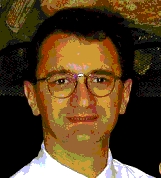
Nikola Krcadinac
(Hinsdale, Illinois)
(630)-789-4496, krcadinac@yahoo.com
Nikola Krcadinac,
originally from Pancevo, Serbia, began a folklore career in 1972 with
his town’s local group “Stanko Paunovic, Železnicar”. He then
took the opportunity to
dance with KUD “Abraševic” under Serbia’s pioneering choreographic
Dobrivoje Putnik, where he continued for eleven years. In 1984,
Nikola joined the Sonja Marinkovic Academic Ensemble in Novi Sad under
the capable direction of Milan Ognjanovic and Milorad Lonic -
Lonce. He has performed in Europe, Asia Minor and Africa.
Coming to America in 1991, he began teaching
at Holy Resurrection Serbian Orthodox Church (Palmer Square) in
Chicago,
and was director of folklore there for ten years. He has also
taught
at Holy Resurrection Serbian Orthodox Cathedral (Redwood Drive) also in
Chicago.
He is an inspiring, demanding director whose students learn to improve
their
dance ability and to enrich their appreciation of Serbian
heritage.
Currently, Nikola teaches two youth groups at St. Basil of Ostrog
Serbian
Orthodox Church in Lake Forest, Illinois in addition to “Sloboda”
(adults)
in Chicago. He lives in Hinsdale, Illinois with his wife,
Christine,
his mother, Vukica and his two children, Dušan and Jovan.
Bob Leibman (Austin,
TX)
(512)-420-0218, bleibman@io.com
Bob Leibman has been
interested in ethnic dance since 1961, when began dancing as a junior
at
University of Chicago. He was born and raised on near and
far
west side of the city. He moved to St. Louis where he got MA in
Math.
He continued to dance and founded a dance group at Washington U.
He
then moved to Boston where he was co-leader of the MIT Folk Dance group
(1965-1969)
and also was the first director of the Mandala Folk Dance Ensemble that
continues on to the present.
Bob traveled to
Yugoslavia in
the summers of 1965, 1967, 1968, 1972, and 1973. He was there for
a
full year on a Fulbright scholarship during 1970-71. He studied
wedding customs, translated many articles and attended and filmed a
number of weddings - in particular, in s. Peshtani on Lake Ohrid where
he had attended weddings in 1965 and 1968. He also traveled
through East Serbia and South Serbia with his first wife who was
writing a dissertation in Slavic Lingusitics
on the Torlak dialects. Here, he attended weddings in Halovo area and
in
Pirot area.
He also did a lot of
filming and recording of music during these trips. He attended the
Ivancan's seminars in 1967 (Pula) and 1968 (Badija) where the teachers
included Ivancan, Dopudja (Bosnia), Desa Djordevic (Serbia) among
others. He also attended a folklore seminar at Ramovsh (Slovenia)
and the seminar on Macedonian dance put on by Pece Atanasovski and
Zhivko Firfov at Oteshevo (L. Prespa) in
1971 and 1972. He wrote the booklet of dance notes for Pece's
first
US tour and has taught many of those dances around the U.S.
Bob devoted a good
portion of
his trip of the summer of 1972 to recording music of good sound quality
and
subsequently released an LP/CD with dances and songs from the Soko
Banja area, including Rumenka, Osamputka, Sokec, Stara Vlajna and
Ostraljanka. He also taped and filmed dancing at weddings among
Tosk Albanians in s. Krani
on Lake Prespa. He issued an LP/CD of music from there and
taught
dances from this area, including Devolliçe, Beraçe, Nesho
and
Grchkoto. Bob did some of this research with Steve Kotansky
and
they recorded music and filmed dancing among Serbs in S. Koretishte,
Gnjilane.
He has yet to issue the music from these sessions (zurles) and has
taught
few of these dances with the exception of Memedo.
Since the middle 1970s,
Bob earned an MA in Folklore from UCLA where he focused on dance and
the Balkans. Bob later received a Ph D in Folklore from
University of Pennsylvania in 1993 - although he did most of his work
in late 70's. He wrote his dissertation
on the structure of dance in the Balkans - a semi-mathematical
analysis,
describing dance families - thus combining his knowledge and love of
both
mathematics and folklore.
Bob did a lot of dance
teaching in the early 70's, and toured around the U.S. in
mid-70s. He has taught several times in Chicago and at the
Bay Area's Kolo Festival, and
was brought to Seattle by Dennis Boxell to teach his group in mid 70's,
etc.
He has taught much less in the 80s and 90s since getting married again,
running
a math department at the University of Texas at Austin, writing a book,
etc.
But he's getting the itch to teach again and hopefully will release
some
more of the music he recorded.
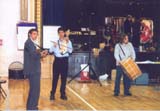 Orchestra Balkanci (Chicago, IL)
Orchestra Balkanci (Chicago, IL)
Angel Dobrev,
(773)-865-5118, angelart_bg@yahoo.com
Orchestra
Balkanci, a traditional Bitov ensemble, has played for
Ethnic Dance Chicago's Spring Fling and Fall Ball Festivals, at the
Madison Folk Ball Festival and at Balkanske Igre's Spring Festivals at
the University of Chicago. Rumen Apostolov
(tambura/tarambuka/tupan) was born in Blagoevgrad. Coming from a
musical family (both his grandfather and father played tambura), he
started to play at the age of seven. He graduated from the Music School
for Folklore in Kotel and from the Academy for Music and Dance Arts in
Plovdiv. He has performed in Greece, Macedonia, Moldavia,
Germany, Canada and the U.S. Angel Dobrev (gadulka) was
born
in Omurtag and started playing gadulka at the age of eight. He is a
graduate
of the Music School for Folklore in Kotel and was a soloist with the
orchestra
of the Academy of Music and Dance Arts in Plovdiv. He won 1st prize
once
and 2nd prize twice in the national competition for gadulka players in
Galabovo.
He has performed with many groups in many different countries including
Greece, Turkey, Macedonia, Italy, Moldavia, Hungary and the U.S. Konstantin
Marinov (tupan) is a graduate of the choreographic school in Sofia
and performed with with the Bulgaria National Folk Ensemble 'Zagore" in
Stara Zagora and with "Slunchev Briag" and directed the national youth
ensemble "Zagorche". Petko Stojanov (bag-pipe, gajda) was
born in Yambol. He started playing gajda at the age of 6.
His first gajda-teacher
was the famous gajda-player Yanko Komitov. Petko attended the
Kotel
Music School for folklore instruments and after graduating began to
perform
with the famous Bulgarian singer Danislav Kehayov and the ensemble
"Slanchev
Briag" (Sunny Beach). Petko has performed in many countries
including
Greece, Russia, Belgium, France, Sweden, Canada, U.S.A and others...
Orchestra Izgrev
(Chicago, IL)
Velizar Shumanov: (630)
993-1522, nufolk@nufolk.com
Orchestra Izgrev,
which means “Sunrise”, was founded in 1998 in Chicago and is the only
Bulgarian wedding band in the Midwest comprised of native
Bulgarians. Every member
of the group is an accomplished musician and, together, they are eager
to
share with Americans and Bulgarians the vibrant musical colors of
traditional Bulgarian wedding and folk-pop music.
Featuring: Malina Grozdanova “Mali” - vocals, Marin Hristov -
trumpet, vocals, Stefan Yordanov - alto, midi sax, vocals, Velizar
Shumanov “Villie” - midi accordion. Special Thanks to
Rumiana Shumanov, George Petrov, and Ivan Petrov for
helping with this project, and to Theodosii Spassov for the inspiration
he has giving us as well as for conferring upon our orchestra the name
of “Izgrev”.
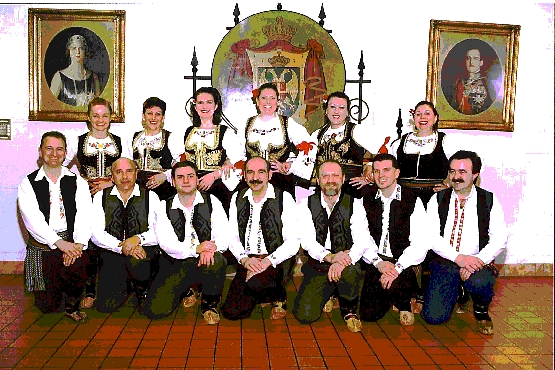
Sloboda Serbian Folklore
Group (Chicago, IL)
Nikola Krcadinac:
(630)-789-4496, krcadinac@yahoo.com
Sloboda, a
Chicago-based performing troupe, under the Serbian National Defense
Council of America (SND) was formed in March 2000. The troupe is
composed entirely of adults,
and has grown to 30 dancers in less than two years. Some of the
dancers
were born in Serbia and some in America. Growing up in the
Serbian
Orthodox Church community most members started dancing as
children. They meet twice a week to dance, socialize and keep the
traditions of Serbia flourishing in the United States. They
first performed in October 2000 for the Midwest Convention of SND in
Warren, Michigan and since then have been much in demand. In May
2001 they celebrated their 1st anniversary with a Folklore Festival at
Monastery “Gracanica” in Grayslake, Illinois. The troupe is
directed by Mr. Nikola Krcadinac, who emigrated from Serbia to America
in 1991 after twenty years of dance experience. Although the
dancers share a common love of Serbian tradition, they lead a variety
of individual lives. Among the troupe members are a pharmacist, a
dental
hygienist, teachers and professional secretaries. Most are
parents,
some even grandparents. The troupe began its repertoire with two
suites
from central Serbia, featuring “Koso Moja”, “Bela Rada” and “Cacak” as
well
as the universal favorite “Moravac”. A suite of dances from Macva
(NW
Serbia) has recently been added and plans are underway to study Vlach
dances
(NE Serbia) and dances from near Leskovac (SE Serbia). The adult
strength and style of this ensemble, and their director’s tasteful use
of authentic material are earning the praise of folklorists, the
applause of audiences, and the welcome of the community.
Ventzi Sotirov
(Elmhurst, IL)
(630)-833-6544, zoya.sotirova@spartech.com
Ventzi Sotirov is a
native of Sandanski and a graduate of the Institute of Choreography in
Sofia, Bulgaria. He has been dancing since the age of 7 when he
was a member of a Sandanski children's ensemble. For 11 years, he
danced with the "Pirin National Ensemble". Ventzi was voted "No.
1 ethnic Dancer" for 4 years in national competitions of professional
dancers in Bulgaria. Ventzi also taught Bulgarian dancing for
children and arranged choreography for amateurs aspiring to enter
choreography institutes. Ventzi presents exciting dances
from all 6 ethnographic regions of Bulgaria: Shope, Thrace, Rhodope,
North
Bulgaria, Dobrudja, and his native Pirin (Macedonia) while
spicing
big doses of humor into his teaching. He plays tupan and
tarambuka
and has taught workshops in these instruments. Since moving to
the
Chicago area in 1991, Ventzi has taught at many groups, workshops and
camps
including: Ethnic Dance Chicago, Door County Folk Festival, Balkanske
Igre's
Reunion Festival, Madison Folk Ball, Santa Barbara's ethnic Music and
Dance
Symposium, Illini Folk Dance Weekend, and Buffalo Gap Music and Dance
Camp.
He has also taught workshops in Japan and Europe.
Zoya Sotirova
(Elmhurst, IL)
(630)-833-6544, zoya.sotirova@spartech.com
Zoya Sotirova is a
native of Strumesnica, Bulgaria and has been singing since she was a
child. She first learned Bulgarian folk songs from her
mother. For 13 years, Zoya was a singer with the choir of the
"Pirin National Ensemble". Zoya was also a featured soloist on
Radio Sofia and "Pirin National Ensemble" recordings. Her lovely
soprano voice, her professional experience and her ability to master
all of the Bulgarian vocal styles led to her selection as a soloist for
a special "Nostalgia" program on Bulgarian National
Television. While Zoya sings and teaches songs from all 6
ethnographic regions of Bulgaria: Shope, Thrace, Rhodope, North
Bulgaria, Dobrudja, and her native Pirin (Macedonia), she is a
specialist of the Macedonian style, with its intricate
ornamentations. Zoya's classes begin with warm-up exercises for
the voice and stretches. She gives historical background for and
translations of the songs she teaches and performs. Since
arriving in the United States in 1993, Zoya's
engagements have included: Old Town School of Folk Music (Faculty), St.
Louis Folk Dance Weekend, Balkanske Igre Reunion Festival, Madison Folk
Ball, Polish Highlanders Festival and various World Cup functions and
at
Taste of Romania. In addition to her vocal talents, Zoya also is
an
experienced seamstress and costume designer.
Tri Bratovchedki
(Madison, WI & St Paul, MN)
Nancy Yugo: (608)-241-3655,
mk@mailbag.com
Tri Bratovchedki
(Three Cousins - Nancy Yugo, Debbie Kmetz, Dan
Garvin) specialize in Eastern European village music. They
have performed and given workshops at the Door County Folk Festival,
The Madison Folk Ball Festival and other venues in the Midwest.
The trio’s singing is characterized by dissonant harmonies and complex
rhythms. Themes of love, grief, national pride, folk tales, legends,
and deep religious faith give this music an energetic and intense
quality. The trio's current repertoire includes Macedonian,
Bulgarian, Croatian, Russian, Serbian, Slovak, and Ukrainian songs.
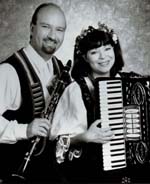
Mazurka Wojciechowska and
Marc Smierciak (Chicago, IL)
Marc Smierciak:
(773)-544-7707, msmier1@uic.edu
Mazurka Wojciechowska,
vocalist, dulcimist and accordionist, graduated cum laude from the
American Conservatory of Music with a degree in vocal performance. She
has sung with The Lira Ensemble, a professional arts organization
promoting Polish song, music and dance, and is now one of its staff
arrangers and their Children’s Choir accompanist. She is also
co-artistic director of the Slavic Projection Folk Ensemble, a group
dedicated to the performance and preservation of the folk music of many
Slavic nations.
Marc Smierciak,
clarinetist, vocalist and accordionist, was born in Chicago to European
parents. Coming from a multicultural background, he had been exposed to
many European cultural traditions since early childhood. He studied
music at the American Conservatory of Music and received degrees in
music, French and linguistics from the University
of Illinois at Chicago. He is also composes chamber music, performs
regularly
with Slavic Projection Folk Ensemble, and jazz music with his brother,
Yves
Francois.
Mazurka
and Marc, the founders of Most, have always had a passion for the
cultural traditions of central and east Europe. It was no surprise that
in the spring of 1999, this shared passion and their musical talent
came together to form Most. In just six months, Most had built a
repertoire of over 300
songs and dances from over 15 countries. Through the ensemble’s
tireless
research, its repertoire continues to expand rapidly. The
ensemble
Most chose this name because the word "most" translates to "bridge" in
every
Slavic language: a fitting name for a group that "bridges" cultures
through
its music. Most performs music from the following Slavic cultures;
Belarus,
Bohemia, Bosnia, Bulgaria, Croatia, Lusatia, Macedonia, Moravia,
Poland,
Russia, Serbia, Slovakia, Slovenia and Ukraine. They also perform music
from
other central and east European cultures such as Austria, Germany,
Greece,
Hungary and Romania among others. And, of course, the list will
continue
to grow!
Yale Women's Slavic
Chorus (New Haven, CT)
Meg Reuland: (203)-776-4381,
margaret.reuland@yale.edu
Founded in 1969, the Yale
Slavic Chorus is an a cappella chorus composed of women from the Yale
University and New Haven communities. It performs a wide range of
Eastern European folk
songs in many different languages and styles. The repertoire of lyrical
songs
borrowed from authentic Slavic choruses tells of love, work, war,
country life, and sorrow. In its performances, the chorus strives to
maintain the tradition of dissonant harmonies, unusual rhythms, and
distinctive vocal
qualities which make Slavic music unique and exciting for so many
listeners.
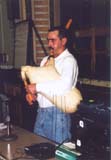
Ljupco Milenkovski (Merrillville, IN)
Ljupco Milenkovski
originally from Dracevo, Macedonia, moved to the U.S. in 1985. He
made and learned to play his first wooden flute at the age of 10 years
old. By the time he was 14, he had started playing kaval
(open-ended flute) with the famed Macedonian musician, Mile
Kolarov. About two years after he started playing kaval, he also
started learning to play the Gajda (bagpipe) from his father, Andreja
Milenkovski. Between 1977 and 1985, Ljupco played traditional
Macedonian dance music with Mile and other musicians for the "Kitke"
Dance Ensemble in Dracevo. In recent years, Ljupco has taught
himself to play the clarinet and saxaphone. He plays some of the
more Macedonian and Southeastern European music with several ensembles
in the Chicagoland & Northern Indiana areas including his own
ensemble, "Sar Planina". Ljupco lives with his wife Linda and
their two children, Andres and Dionaa in Merrillville, Indiana.
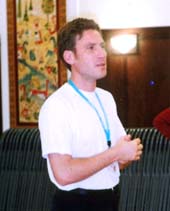 Yuliyan Yordanov (Madison, WI)
Yuliyan Yordanov (Madison, WI)
(608) 334-9495, yyusa02@yahoo.com
Yuliyan Yordanov is
originally from Lovech, Bulgaria. "Yuli" graduated
from the Academy of Music and Dance Art in Plovdiv, Bulgaria. His
training qualified him as a dance director, choreographer, and
Bulgarian folk dance instructor. Prior to graduation, he worked
as a choreographer, teacher, and coach for youth dance groups and
ensembles in the city of Lovech, Bulgaria. Yuli and his students
participated in many concerts, celebrations, and international
festivals throughout Bulgaria and the rest of Europe. In May
1995, Yuli and his group were selected to appear on a Bulgarian
Television program celebrating folklore and traditional culture. In
1997 he was invited to attend the traditional annual party for teachers
of folklore and culture hosted by the President of Bulgaria, Petar
Stoyanov.

 Dennis Boxell (Fair Oaks, CA)
Dennis Boxell (Fair Oaks, CA) 
 Orchestra Balkanci (Chicago, IL)
Orchestra Balkanci (Chicago, IL) 

 Yuliyan Yordanov (Madison, WI)
Yuliyan Yordanov (Madison, WI)